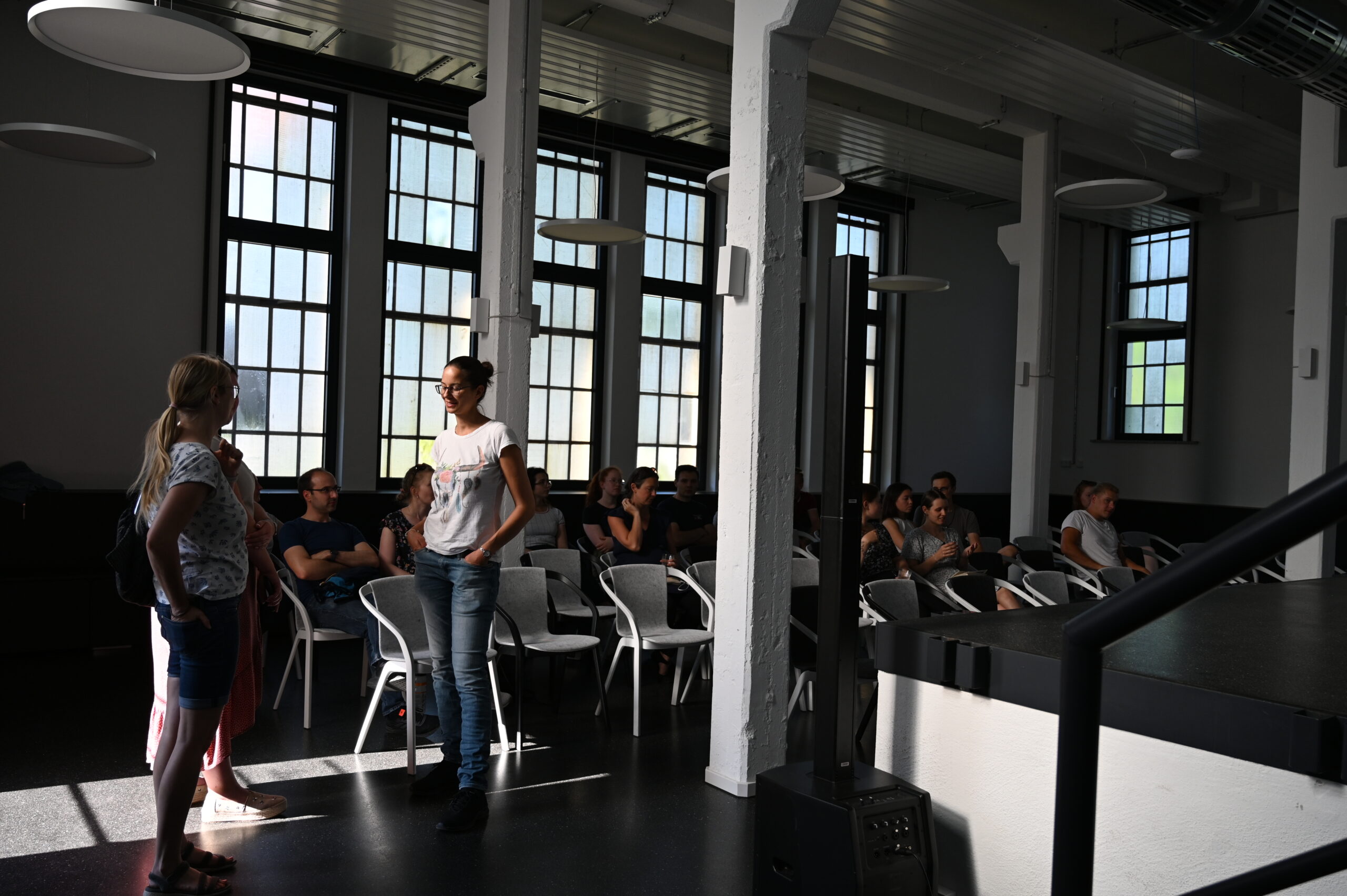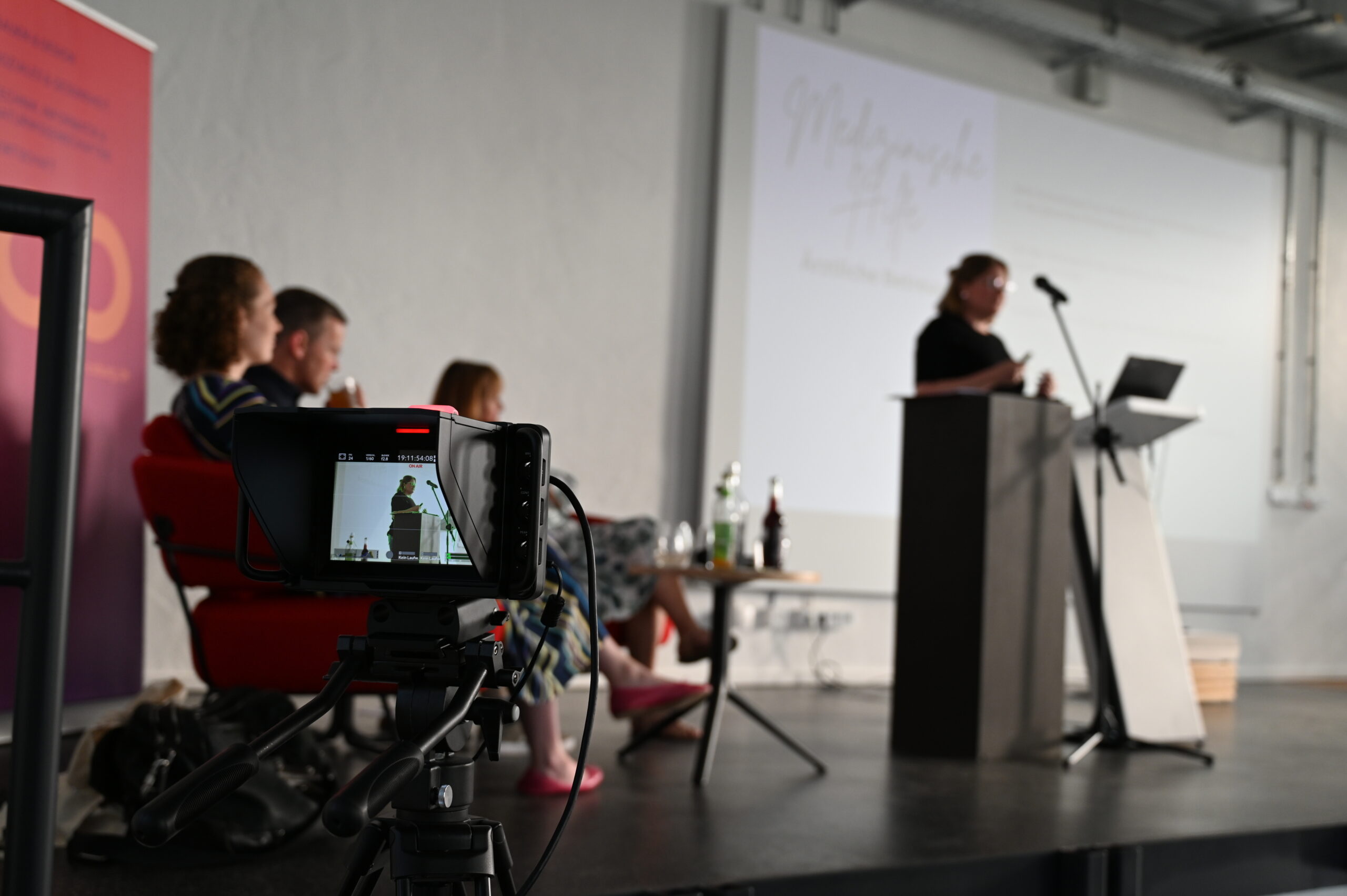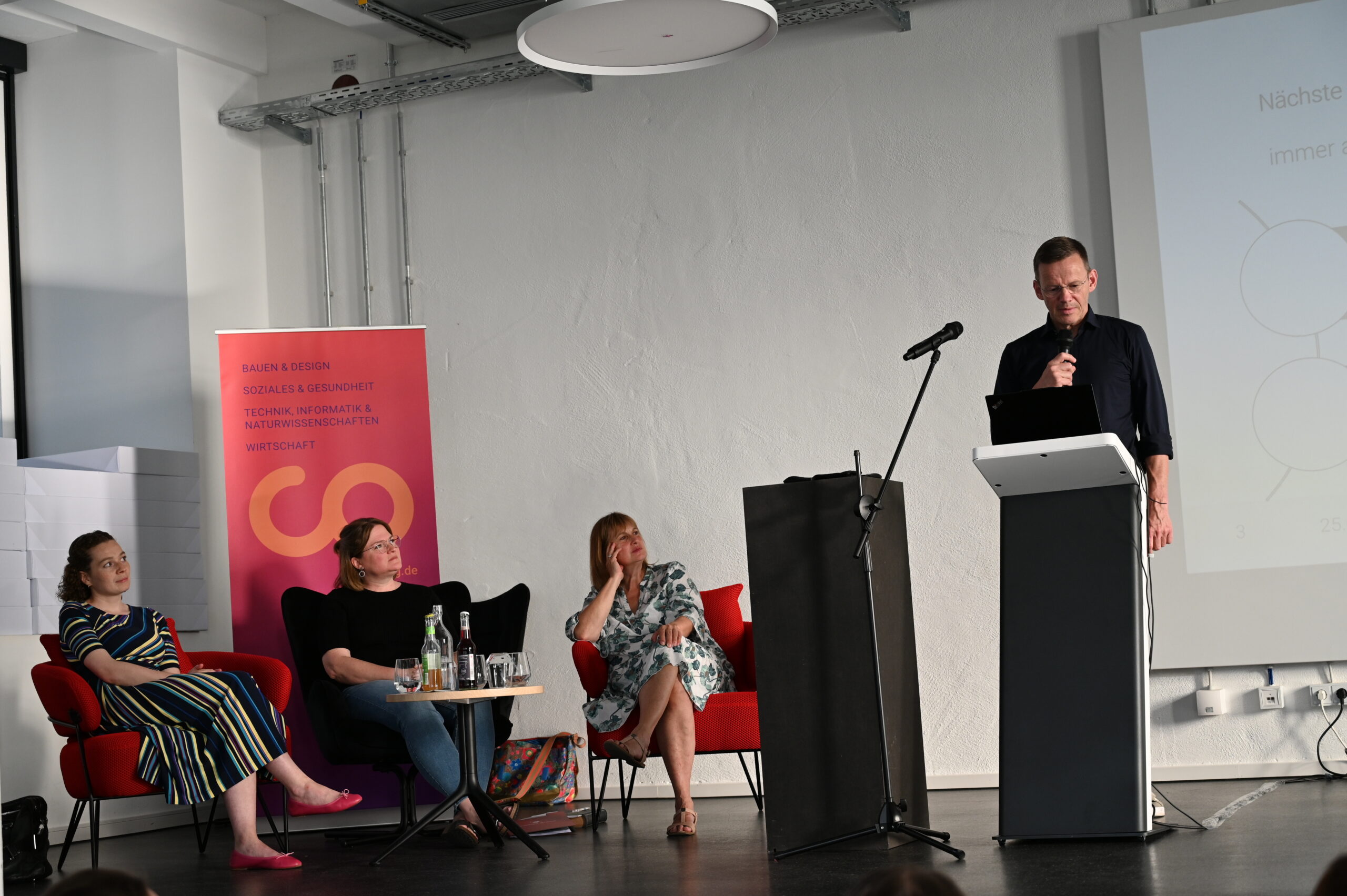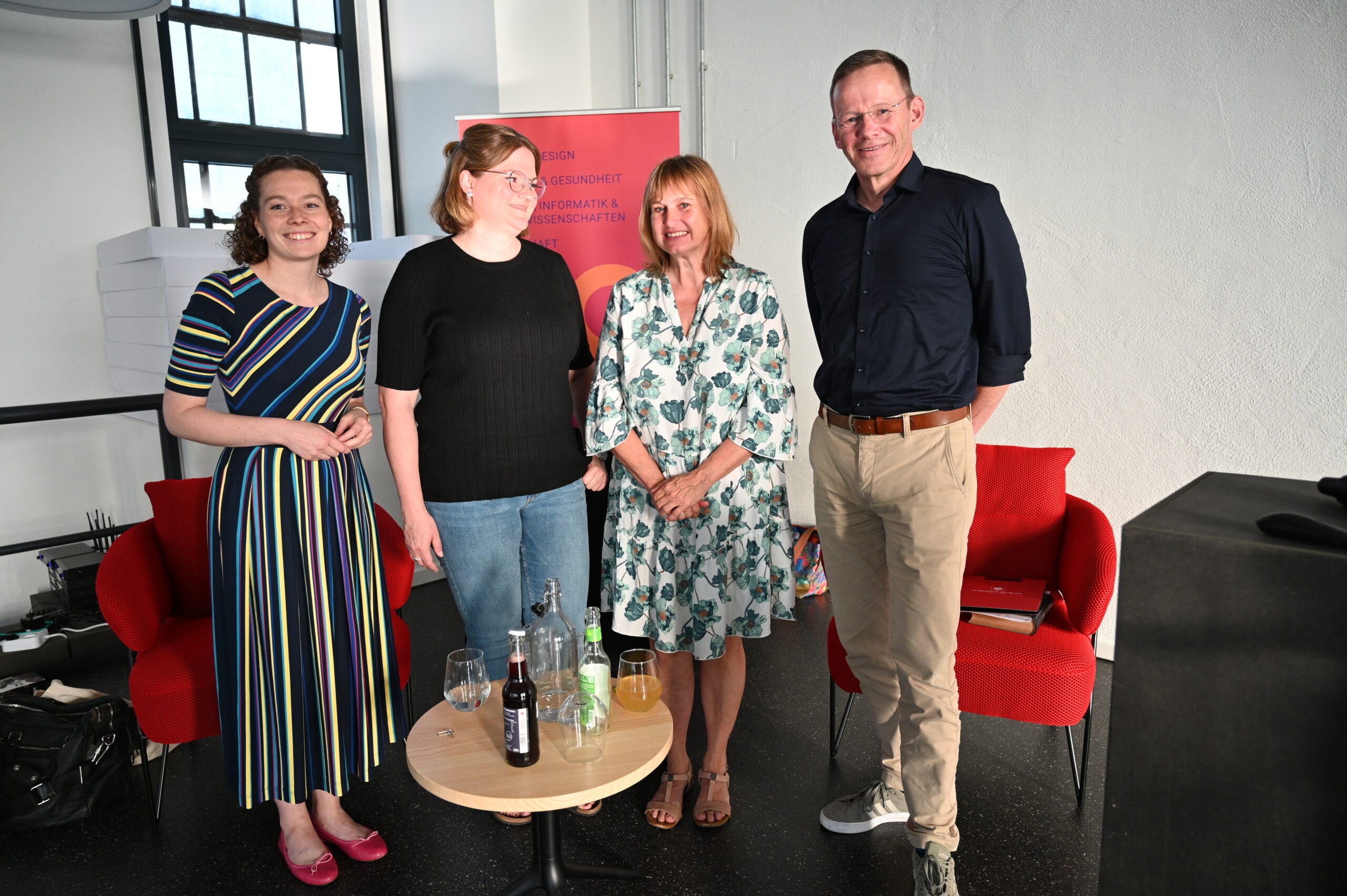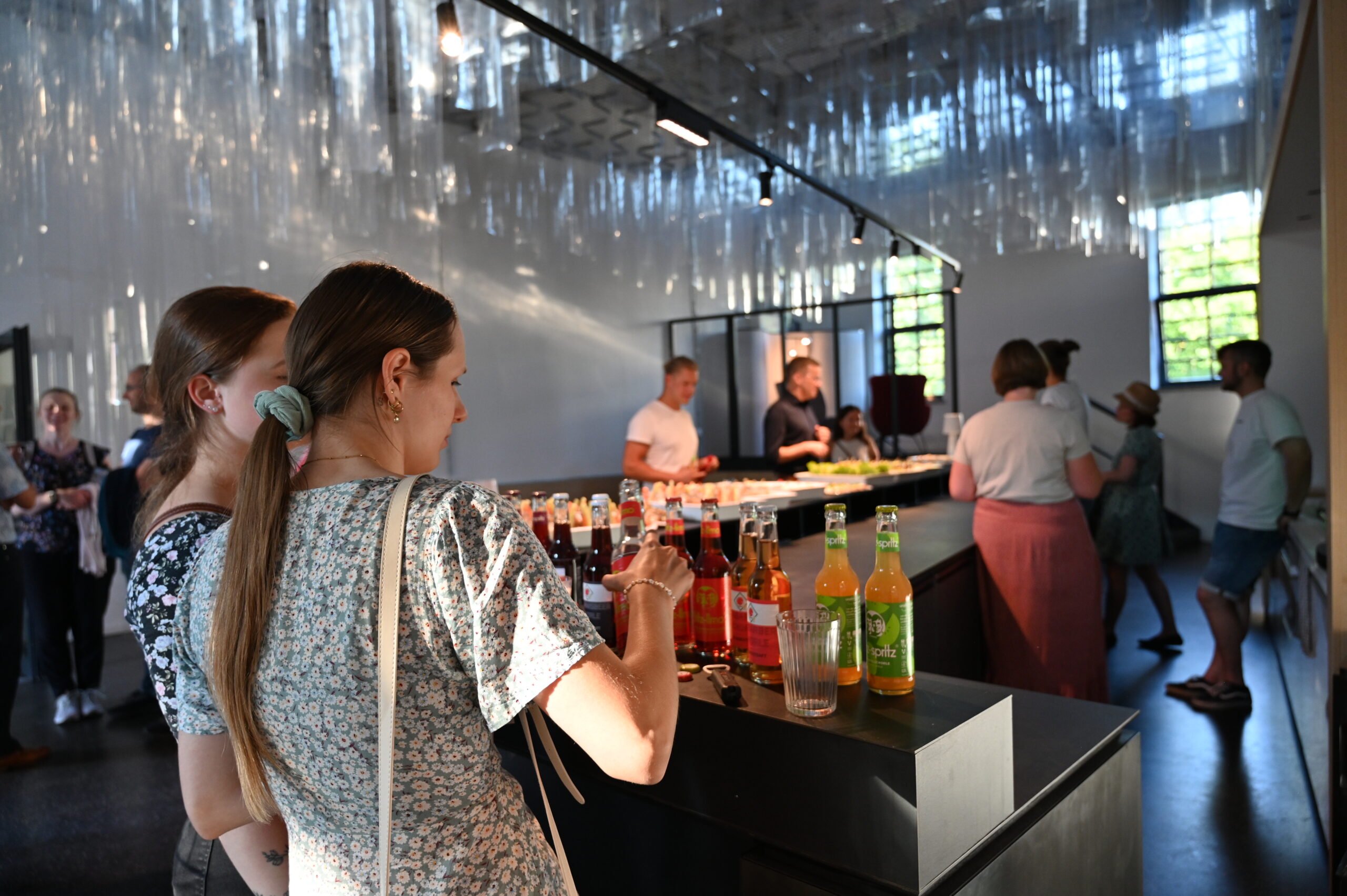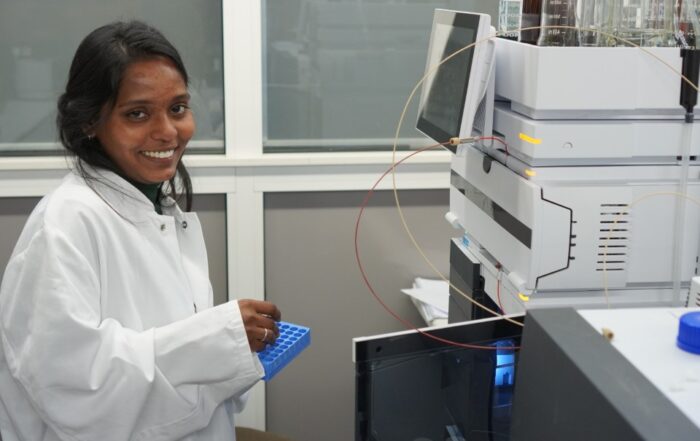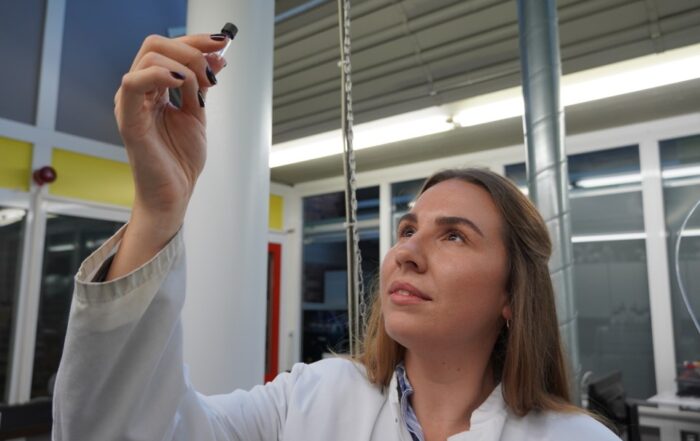27. June '24
by Andreas T. Wolf
The theme evening “Health! Knowledge for everyone by Coburg University of Applied Sciences” on Wednesday was attended by young mothers and those who might want to become one.
They found out why we are living in the best time for good hope and what help is available for pregnancy, before and after. “Healthy Pregnancy – Strong Together” was not just a topic for mothers, but also exciting for companions and fathers.
The aim of the evening was to provide information on health science, support services and support techniques.
This knowledge could also be internalized by the companions – after all, expectant mothers go through a change that is usually only experienced during puberty. Prof. Dr. Eberhard Nöfer, standing in for Dr. Markus Neufeld, Head of the Transfer & Entrepreneurship Department of the CREAPOLIS + design project, summed up the motivation behind such information events: “We are all the result of a successful pregnancy, but tragically we cannot remember our own birth. When we give birth, this knowledge is no longer there.”
Those affected are often unprepared or even surprised when it comes to the birth.
Today, pregnancy is something we take for granted and there is more knowledge and support available than ever before, as midwife Barbara Wank from Coburg Hospital explained in a short historical excursus on the views and depictions of pregnancy.
From the first known depictions of fertility goddesses to the heavily pregnant women working in the fields in the Middle Ages to the revolution with the “contraceptive pill”, the guests were given an impression of how views of expectant mothers have changed.
Today, expectant mothers do not have to hide and can also expect help from society and partners.
A crash course in self-care and the latest research findings was provided by doctoral student Maria Kuhn from the Faculty of Applied Natural Sciences and Health at Coburg University of Applied Sciences: “What do adolescents going through puberty and pregnant women have in common? The body undergoes massive changes! The major hormonal change causes the brain to restructure.”
The latest research findings indicate that the gray matter in the brain decreases significantly during pregnancy and that less important functions are reduced so that skills critical for parenthood – such as attention, empathy, but also the sense of taste and smell – are strengthened.
Science compares this to pruning a fruit tree, said Kuhn: “The reward system is also influenced and there is a high motivation to change behavior. This is why some women find it easier to simply stop smoking or drinking alcohol, for example. Pregnancy can even be detected years later in an MRI scan. The more often they become pregnant, the more pronounced the changes become.”
In short, women who are expecting a child have to go through four phases:
- Uncertainty: once the circumstances have been established, questions and doubts arise.
- Adaptation: A child concept develops, a certain sense of well-being sets in.
- Concretization: Change of the body and active perception of the child.
- Preparation: Start of maternity leave and active birth planning.
Return from fears and worries.
“Pregnancy can be very challenging. Women have a lot to deal with,” says the doctoral student.
That’s why she wants to emphasize the importance of self-care: “It’s not something selfish. It’s an ability to deal with yourself, to take your needs seriously and to talk about them with a trusted person.”
Seven tips are designed to help you quickly and easily train new and healthy behavioral patterns, even before the difficult time.
Ideally, you should write them down individually and file them away where you can find them again.
Her tips:
- Identify your resources and sources of strength.
- Make a list of people who support you.
- Get some exercise in the fresh air!
- Take your feelings and needs seriously!
- Learn an active relaxation technique.
- In the evening, name 10 things you are grateful for.
- Write a “to-do list”, because sometimes there are days when mothers think they have done nothing worthwhile.
“When you’ve written down every diaper change and breastfeeding, you realize how much you’ve actually done!” assures Kuhn.
She has also developed an app as part of her doctoral thesis to help with this: “My Treehouse”(MeBa
) offers 14 modules. Eight for during pregnancy, six for the postpartum period. Various learning and behavioral techniques from science are taught in order to practice healthy behavior. At the end of the evening, midwife Henrike Beck from the midwife coordination of the city and district of Coburg presented the local support options for parents-to-be. Financial support is already available before the birth in the form of maternity benefit, maternity pay or the state foundation “Hilfe für Mutter und Kind”. After the birth, there is also child benefit, basic parental allowance, parental allowance plus, citizen or housing benefit, Coburg family pass and much more. Every pregnant woman is entitled to preliminary examinations and midwife assistance and advice. In Coburg, there is even a special midwife consultation for families without a midwife. One of the first points of contact is the pregnancy counseling service provided by the Diakonie or Caritas, for example. The youth welfare office also offers help with advice on parenting or help with recognizing paternity – or when it comes to child support or adoption. The Coburg Family Center is home to several help centers such as KoKi, Harl.e.kin aftercare for high-risk births and sick children. A second-hand store and parents’ cafés, lectures and advice round off the numerous options. There are also numerous help centers for difficult situations such as postpartum depression, child loss or disability or violence and conflict in the family, assures Beck: “We have great offers here in Coburg.” With the series “Health! Knowledge for everyone by Coburg University of Applied Sciences”, Coburg University of Applied Sciences is continuing the theme evenings from the TAO Health Year 2023. The next topic in November will be “AI in personalized medicine” with
Prof. Dr. Stefan Simm will be.
The themed evenings are supported by the CREAPOLIS + design project as part of the federal-state initiative Innovative University and by the Technology Alliance Upper Franconia (TAO).


